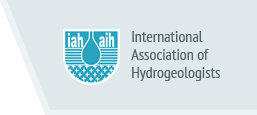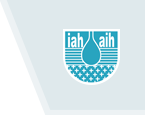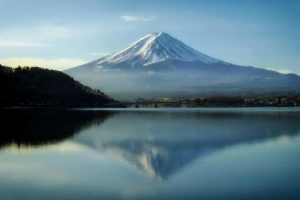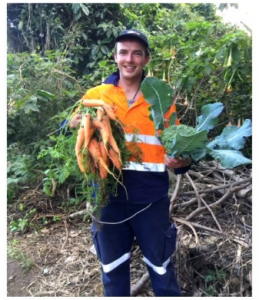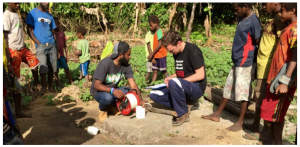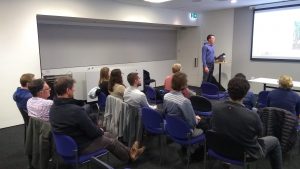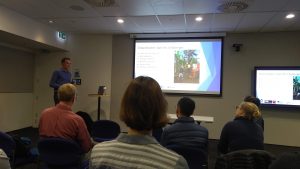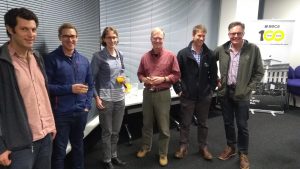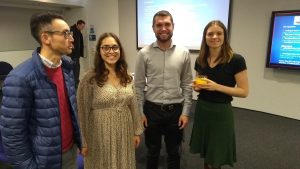2020
Past Events in Christchurch
“Mission to Malawi – a Hydrogeological Safari“
Presented by David Scott, a Groundwater Hydrologist and reluctant African adventurer, from the Institute of Environmental Science and Research (ESR) on 22 October 2020. The meeting was held at Environment Canterbury, Tuam Street, Christchurch and online via microsoft teams.
Abstract:
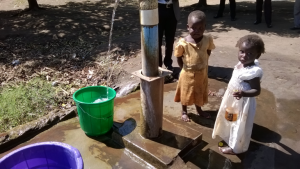 In 2015 I accepted an assignment from the European Investment Bank to review water resource development options for the city of Blantyre in Malawi. The project was prompted by the Blantyre Water Board’s interest in the use of groundwater to supply peri-urban settlements but also involved review of feasibility studies of large-scale surface water supply schemes. This talk will provide a brief overview of Blantyre’s water supply issues, explain how I became to be involved and present a summary of the outcomes – along with some personal reflections on an unexpected opportunity to visit Africa.
In 2015 I accepted an assignment from the European Investment Bank to review water resource development options for the city of Blantyre in Malawi. The project was prompted by the Blantyre Water Board’s interest in the use of groundwater to supply peri-urban settlements but also involved review of feasibility studies of large-scale surface water supply schemes. This talk will provide a brief overview of Blantyre’s water supply issues, explain how I became to be involved and present a summary of the outcomes – along with some personal reflections on an unexpected opportunity to visit Africa.
Past Events in Auckland
“Hydrogeological controls on stratovolcanic geothermal systems in the Western Branch of the East African Rift System”
Presented by Keg Alexander, Senior Associate at Beca on 18 February 2020 at Beca House, 21 Pitt Street, Auckland 1010.
Abstract:
High-temperature geothermal systems associated with stratovolcanoes (also known as composite cones) can be found at locations around the world. For example, in Indonesia, most successful geothermal developments have been completed on the lower slopes of (or adjacent to) stratovolcanoes where there are surface manifestations of a hydrothermal system.
In the Western Branch of the East African Rift System, stratovolcanoes are located in two areas: the Virunga Volcanic Province (VVP) in Rwanda/DRC/Uganda, and the Rungwe Volcanic Province (RVP) in southwestern Tanzania. Extensive geothermal exploration surveys have been performed at the stratovolcano Karisimbi in the VVP (including a 3,000-m deep well), and the former stratovolcano Ngozi (now a caldera) in the RVP, based on the tacit assumption that they host high-temperature reservoirs. The results of the exploration work completed to date suggest that neither site appears to host a high-temperature geothermal system.
Understanding the hydrogeology of a geothermal system provides insight into recharge and possible outflow directions. This paper will compare the data from recent studies at Karisimbi and Ngozi and evaluate the hydrological and geological characteristics similar to both sites including: 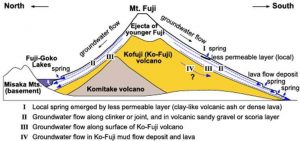
(1) the absence of surface manifestations (hot springs, fumaroles, alteration),
(2) the presence of CO2-rich cold or tepid springs,
(3) the shallow depth to Proterozoic basement rock,
(4) the likely deep source of heat and magmatic volatiles,
(5) the relatively strong topography-driven groundwater flow systems.
Lessons learned from Karisimbi and Ngozi are applicable to possible future geothermal resource assessments at other stratovolcanoes in the Western Branch including, for example, at Kyejo (RVP) or Kinigi (on the SE flanks of Visoke in the VVP).
“Gudfala Graonwota Stap Wea? – Groundwater exploration and development in Vanuatu”
Presented by Samuel Kelsey, VSA and EWB Volunteer as a Hydrogeological Advisor on 14 July 2020 at Beca House, 21 Pitt Street, Auckland 1010.
Overview:
Sam Kelsey has recently returned from a 6-month volunteering assignment in Vanuatu. As a Hydrogeological Advisor working with the Vanuatu Department of Water Resources, Sam presented on the unique challenges that Vanuatu face with accessing groundwater supplies on its small reef and volcanic islands and the work that he has contributed to in order to help solving these issues.
Photographs of the presentation and socialising after the meeting.



